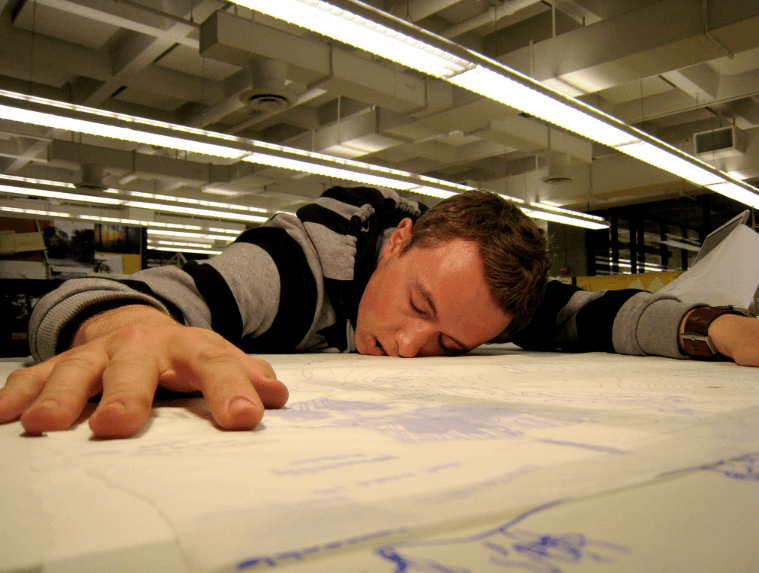The Connection Between Lack Of Sleep And Chronic Pain In The Workplace
Lack of sleep effects workers health, safety, and productivity. According to a National Sleep Foundation poll, a third of American employees report that daytime fatigue interferes with their daily activities at least a few days each month. Americans are spending an average of nearly 4.5 hours each week doing additional work from home on top of a 9.5-hour average workday. 22 million Americans are reported to get inadequate sleep, and that figure is increasing each year. Many jobs have shifts that span 24-hours; such as, law enforcement, firefighting, healthcare, energy, and manufacturing jobs. Workers that travel across time zones can also be affected. And those who work long hours report greater impatience, lower productivity, and difficulty concentrating. So you can see that a lack of sleep alone, harms American businesses.
Sleep And The Link To Chronic Pain
So how does sleep affect chronic pain? Pain and sleep are integrally connected. According to the National Sleep Foundation, approximately 15% of people that experience sleep disorders also have chronic pain. On the flip side, studies investigating chronic pain found 66% of people that are in pain report sleep disturbances. Although these two studies had vastly different parameters, many researchers have found clear connections. Pain can be the main reason that an individual wakes up multiple times a night, and this results in a decrease in sleep quantity and quality. Conversely, sleep deprivation can lower your pain threshold and pain tolerance and make existing pain feel worse. It can become a vicious cycle.
A lack of sleep has a profound impact both on overall physical as well as mental health. The physiological effects of a lack of sleep include increased cortisol (stress hormones), elevated insulin levels, increased appetite and calorie intake, lower metabolism, and lower immunity. The lack of sleep puts individuals at risk for major chronic diseases, including obesity and diabetes. Sleep is critical to the healing process and should be considered to optimize treatment. And we know that sleep deprivation contributes to the body’s inflammatory burden which can elevate pain levels.
Mentally, once a pattern of chronic pain and sleep disruption occurs, individuals can begin to believe they won’t be able to sleep and are more likely to suffer from insomnia, thus causing worse pain. And bad sleep hygiene or sleep habits can just add to the problem. To address sleep in the context of pain management is incredibly important.
What Are The Signs Of Sleeplessness
Individuals who don't sleep well can exhibit the following symptoms:
- Frequent sleepiness
- Nodding off at meetings or while driving
- Difficulty with concentration
- Lapses in memory
- Poor performance
- Mood changes -- more reactive and irritable
Obviously, this is not beneficial to employers, productivity, safety or the workers themselves.
Integrative Approach To Pain Management
What can companies do to address chronic pain in the workplace? In addition to standard healthcare, many companies are finding it cost effective to offer complementary Pain Management Programs. Many alternative treatments can help when traditional medication is ineffective, and they may better address the underlying cause of pain. Musculoskeletal pain accounts for one-third of the healthcare claims in the U.S., and this category is one of the fastest growing. Studies show musculoskeletal pain produces workplace absenteeism, medication usage, low productivity, and low morale. Hands-on deep tissue treatment therapy is proven to reduce and eliminate muscular pain and injury in workers.
Pain exists on a continuum that represents the gradual changes in intensity. The perception of pain can increase in people that do not get adequate levels of sleep. With proper care (both physically and concerning sleep), the pain can gradually decrease. But the longer the pain and sleep issues are left untreated, the more care it will require to get both back to normal. Regardless of what has caused the pain or what caused the sleeplessness, the workplace is affected.
Addressing pain issues at the earliest stages of the pain continuum is the most cost-effective and typically resolves quickly. DORN brings proven expertise on weighing and implementing pain management as a vehicle to assist company risk managers while realizing the well-being goals of workers. Finding the balance is key to retaining of talent, keeping HR in the black and the continuing success of your enterprise.
Often, when one area improves, it can also positively affect the other. Bottom line, if you have chronic pain and trouble sleeping, addressing both in parallel can speed the effectiveness of your treatment program.
Fight Pain With Sleep & Improve Your Sleep By Addressing Pain Issues
In summary, many studies found irrefutable correlations between chronic pain and sleep issues and often there is a vicious cycle between the two. We find that through an integrative health approach, treatments that tackle both chronic pain and sleep in parallel have significantly improved outcomes.
Sources
https://www.dorncompanies.com/total-worker-health/
http://www.bcmj.org/worksafebc/sleep-apnea-and-workplace-safety#a4
http://blog.aapainmanage.org/the-connection-between-sleep-and-treating-pain/
https://www.dorncompanies.com/case-studies/
http://www.webmd.com/sleep-disorders/features/pain-sleep#1
http://techfeatured.com/automotive/1625/the-holistic-approach-to-pain-pain-management http://www2.warwick.ac.uk/newsandevents/news/sleep_is_key/
/top-ways-reduce-workers-compensation-costs/
http://www.webmd.com/sleep-disorders/features/sleep


